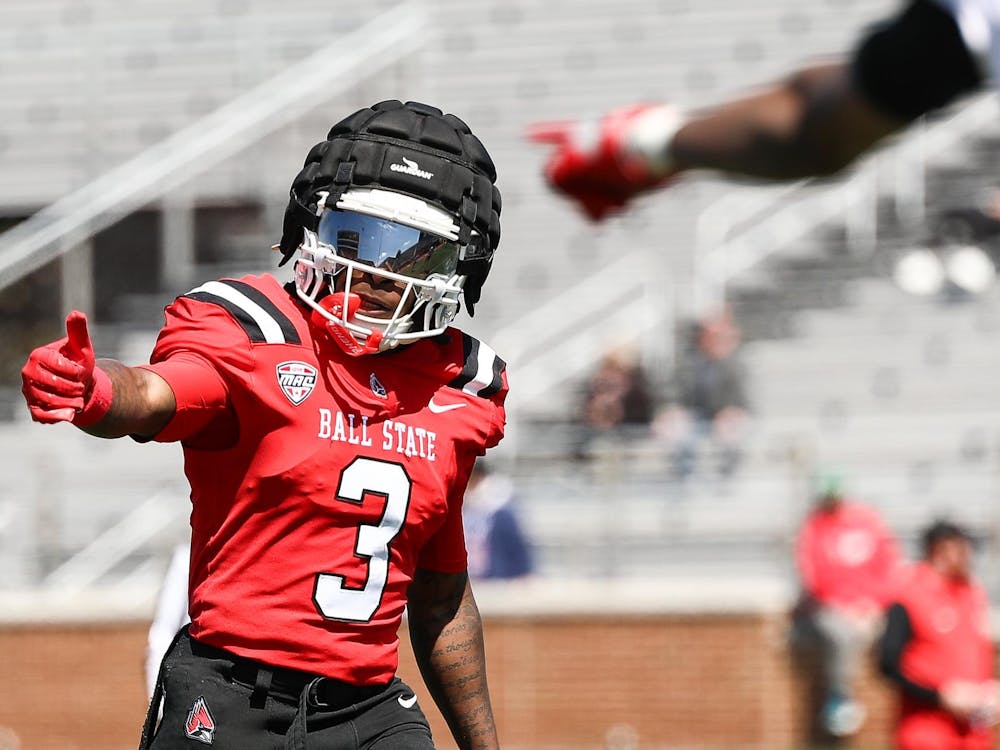Walking Wounded 5k
The event takes place Saturday.
Registration: 8:30 a.m.
Ceremony: 9:30 a.m.
March start: 10 a.m.
Cost: $10
The march will be handicapped-accessible. Registration includes a T-shirt and lunch at an awards ceremony after the walk. For more information, click here.
• The Student Veterans Organization will host an awareness march for post-traumatic stress disorder from 9 a.m. until 4 p.m. Saturday.
• In the U.S., 7.7 million adults have PTSD, according to the National Institute of Mental Health.
• A student veteran said the reality of PTSD is not like the media portrays it.
With only a week to transition from life in the U.S. Navy to life on campus, one graduate student had some difficulty adjusting.
Hondo Tamez, an information and communication sciences graduate student, got out of the Navy in August 2009 and came to Ball State a week later.
“It was a big change from doing Navy life every day and then stopping and becoming a school student,” he said.
But Tamez said the university helps student veterans transition. He said Ball State is now teaching faculty that veterans do things differently than other students.
“The university is doing different things now to create veteran-friendly zones,” Tamez said. “Also, they’re losing the stigma that all veterans are wounded by [post-traumatic stress disorder] or anything like that.”
PTSD is a mental health condition that happens after being through a stressful or terrifying experience, typically involving physical harm or the threat of it, according to the National Institute of Mental Health. People who have PTSD might regularly feel frightened, anxiety, or experience flashbacks, even if they are in a safe environment.
The disorder affects about 7.7 million American adults, according to the NIMH.
In order to fight stigmas attached to PTSD, the Student Veterans Organization will host an awareness march Saturday. The Walking Wounded 5k event starts at 10 a.m. in Scheumann Stadium.
Even without PTSD, the transition to college can be difficult for veterans, said Jessica Robinson, vice president for Ball State’s SALUTE Honor Society.
“Typically, veterans are older than their peers, so connecting in general, just because [they’re] older, is a struggle,” Robinson said. “Getting back into a specific schedule and meeting those demands [could be hard] because it might have been longer time between high school and college, so math and English might be harder.”
Because PTSD can be difficult for people to handle, Tamez said it’s important to not put a negative light on people with the disorder. Sometimes, he said, people will avoid veterans with PTSD.
“So sometimes, they shy away, which leaves the veteran out there alone,” Tamez said. “And that’s when the suicides happen or murders can happen.”
Robinson said the media has taught people to fear those with PTSD, but this does more harm than good.
“Most people with PTSD aren’t going to be angry people who want to kill everyone — that’s not PTSD at all,” Robinson said. “That’s like saying that every student who is bullied is going to become a serial killer and shoot a school up. That image is just the media basically blowing it out of proportion.”
“There’s a lot of people saying, ‘Oh, every veteran has PTSD. We should watch out because they’re going to go nuts,’” he said. “I think that’s my biggest thing: to break the stigma of PTSD.”
Many people equate PTSD with alcohol or drugs, Tamez said, but he doesn’t think that is the case for most veterans.
“Most people who have it are coping,” he said. “They may be medicated, but it’s through actual prescriptions. Not everyone is violent.”




